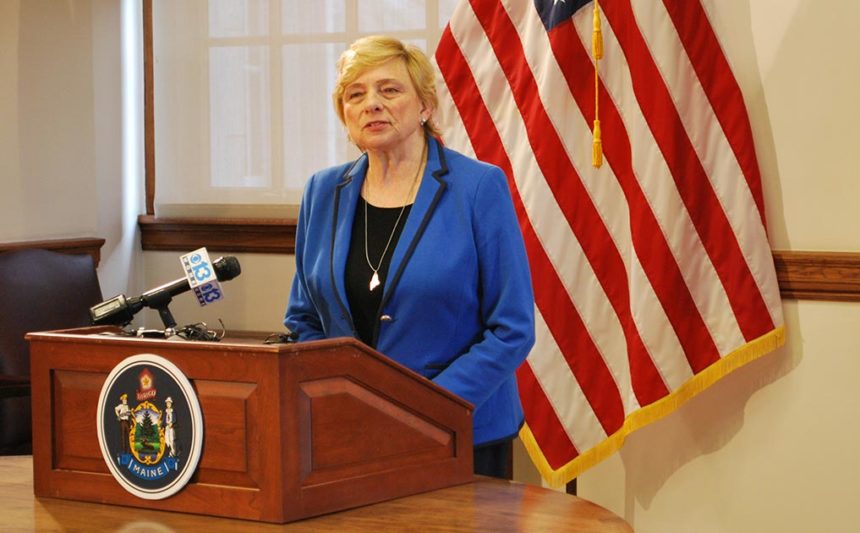
Five healthcare advocacy groups are asking Maine Gov. Janet Mills (D) to extend the deadline for mandatory vaccines for healthcare workers across the state, citing a “severe and worsening essential support workforce crisis.”
As it stands, workers in residential care facilities, nursing facilities, home health agencies and other healthcare settings are required to get vaccinated by Oct. 1 or lose their jobs.
Leading Age Maine and New Hampshire, the Maine Association for Community Service Providers, the Maine Council on Aging, the Alliance for Addiction and Mental Health Services and the Behavioral Health Community Collaborative are asking the governor to extend the timeline by 45 days or wait until a date for a federal mandate is announced, whichever comes sooner. The advocacy groups also asked the governor to let new hires who have had one shot in a two-shot series work in facilities beyond the Oct. 1 deadline, to help prevent staffing shortages.
“We fully agree that it is ideal for every worker who cares for a vulnerable person to be vaccinated. However, the mandate is not allowing sufficient time to get staff vaccinated, to find replacement staff for those who will leave, and to create contingency plans for safely moving residents from facilities that need to close due to inadequate staffing,” the groups’ letter states.
Lisa Henderson, executive director of LeadingAge Maine and New Hampshire, told the McKnight’s Business Daily:“The rushed timeline for implementation plus zero financial and/or other supportive resources offered by the state means that some providers are at risk of shutting down admissions or closing their doors altogether due to staffing shortages. These concerns are going unanswered by Governor Mills. Providers feel hung out to dry.”
The mandate was designed to keep people safe, Henderson noted, “but when older adults can’t access care or are displaced, the health risks to an already vaccinated individual could potentially exceed the risk of contracting COVID during this transition period until all staff are vaccinated.”
The organizations requested a meeting with the governor and leaders of the state Department of Health and Human Services to discuss “what, if anything, the state can do to assist providers from failing during this precarious time.”
The state maintains that the emergency rule’s Oct. 1 effective date “provides healthcare workers adequate time to get vaccinated, particularly given that the vaccine is free and widely available throughout the state,” Jackie Farwell, director of communications at the Maine Department of Health and Human Services, told the McKnight’s Business Daily. “Additionally, Maine CDC has procured 10,000 additional doses of the one-shot Johnson & Johnson vaccine this week that it has prioritized for healthcare workers to support our efforts to protect this vital workforce.”
Laura Cordes, executive director of the Maine Association for Community Service Providers, which supports adults and children with intellectual and developmental disabilities, told the McKnight’s Business Daily that the organization is not opposed to the mandate in principle.
“We were running on fumes with a significant workforce shortage crisis before the pandemic. Now, over 18 months in, we have lost 20% to 30% of our workforce and are running on empty,” she said. “The vaccination mandate will mean a further loss of staff. The loss of just one more staff member at one of dozens of group homes across the state may mean that we will have to displace people from their home, and the services that they need and deserve, simply because we do not have the staff to care for them.”
Jess Maurer, executive director of the Maine Council on Aging, told the McKnight’s Business Daily that the mandate places one more burden on a workforce that was already “failing” before the pandemic.
“The mandate is the straw that will break the back of several facilities who will not be able to maintain adequate staffing,” she said. “The mandate is important — staff should be vaccinated. A strict application of the mandate with no accounting for the prior worker shortages nor assistance with securing replacement workers, means too many older people and their families are likely to suffer the consequences.”




